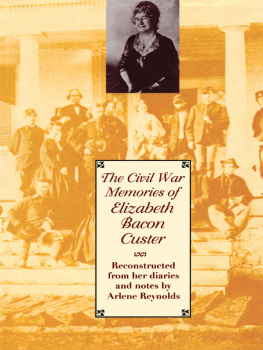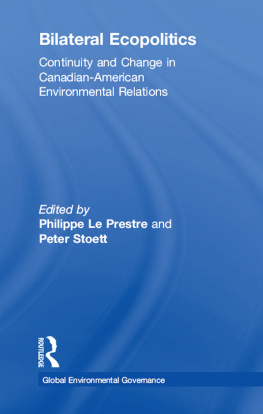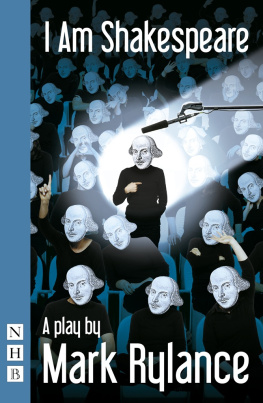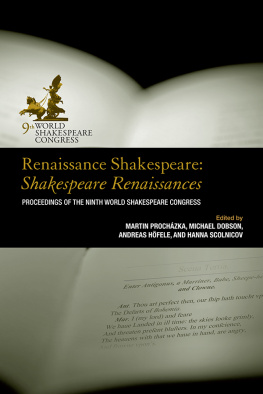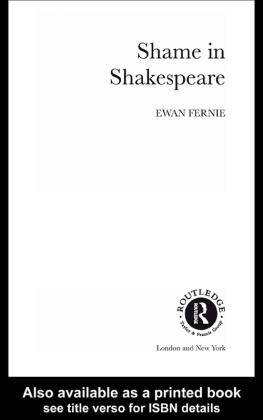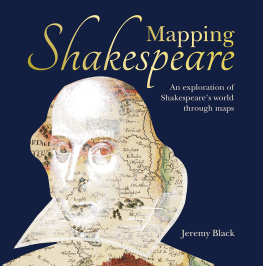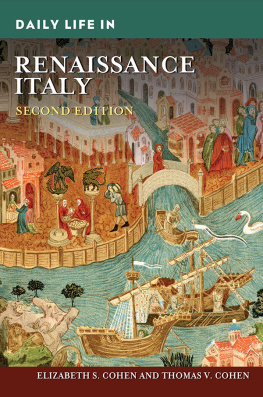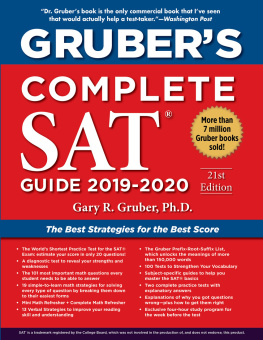Elizabeth D. Gruber - Renaissance Ecopolitics From Shakespeare to Bacon
Here you can read online Elizabeth D. Gruber - Renaissance Ecopolitics From Shakespeare to Bacon full text of the book (entire story) in english for free. Download pdf and epub, get meaning, cover and reviews about this ebook. year: 2017, publisher: Taylor & Francis Ltd;Routledge, genre: Romance novel. Description of the work, (preface) as well as reviews are available. Best literature library LitArk.com created for fans of good reading and offers a wide selection of genres:
Romance novel
Science fiction
Adventure
Detective
Science
History
Home and family
Prose
Art
Politics
Computer
Non-fiction
Religion
Business
Children
Humor
Choose a favorite category and find really read worthwhile books. Enjoy immersion in the world of imagination, feel the emotions of the characters or learn something new for yourself, make an fascinating discovery.

- Book:Renaissance Ecopolitics From Shakespeare to Bacon
- Author:
- Publisher:Taylor & Francis Ltd;Routledge
- Genre:
- Year:2017
- Rating:4 / 5
- Favourites:Add to favourites
- Your mark:
- 80
- 1
- 2
- 3
- 4
- 5
Renaissance Ecopolitics From Shakespeare to Bacon: summary, description and annotation
We offer to read an annotation, description, summary or preface (depends on what the author of the book "Renaissance Ecopolitics From Shakespeare to Bacon" wrote himself). If you haven't found the necessary information about the book — write in the comments, we will try to find it.
Renaissance Ecopolitics From Shakespeare to Bacon — read online for free the complete book (whole text) full work
Below is the text of the book, divided by pages. System saving the place of the last page read, allows you to conveniently read the book "Renaissance Ecopolitics From Shakespeare to Bacon" online for free, without having to search again every time where you left off. Put a bookmark, and you can go to the page where you finished reading at any time.
Font size:
Interval:
Bookmark:
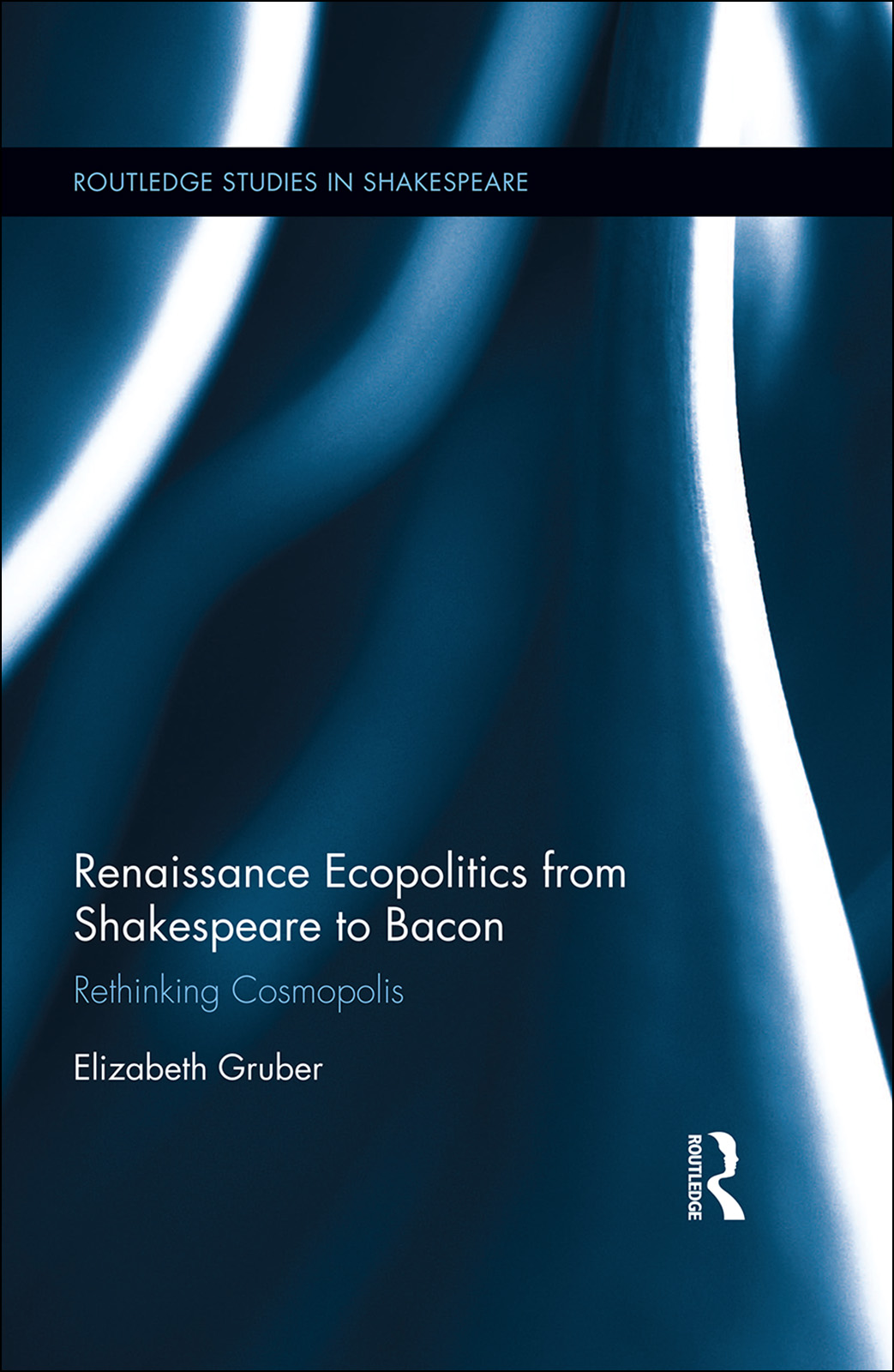
Renaissance Ecopolitics from Shakespeare to Bacon
The work of Shakespeare and his contemporaries has often been the testing ground for innovations in literary studies, but this has not been true of ecocriticism. This is partly because, until recently, most ecologically minded writers have located the origins of ecological crisis in the Enlightenment, with the legacies of the Cartesian cogito singled out as a particular cause of our current woes. Traditionally, Renaissance writers were tacitly (or, occasionally, overtly) presumed to be oblivious of environmental degradation and unaware that the epistemethe conceptual edifice of their historical momentwas beginning to crack. This perception is beginning to change, and Dr Gubers work is poised to illuminate the burgeoning number of ecocritical studies devoted to this period, in particular, by showing how the classical concept of the cosmopolis, which posited the harmonious integration of the Order of Nature (cosmos) with the Order of Society (polis), was at once revived and also systematically dismantled in the Renaissance. Renaissance Ecopolitics from Shakespeare to Bacon: Rethinking Cosmopolis demonstrates that the Renaissance is the hinge, the crucial turning point in the human-nature relationship, and examines the persisting ecological consequences of the nature-states demise.
Elizabeth Gruber is a Professor in the English Department at Lock Haven University.
Routledge Studies in Shakespeare
For a full list of titles in this series, please visit www.routledge.com.
15 Shakespeare in Hate
Emotions, Passions, Selfhood
Peter Kishore Saval
16 Shakespeare and Hospitality
Ethics, Politics, and Exchange
Edited by David B. Goldstein and Julia Reinhard Lupton
17 Shakespeare, Cinema, Counter-Culture
Appropriation and Inversion
Ailsa Grant Ferguson
18 Shakespeares Folly
Philosophy, Humanism, Critical Theory
Sam Hall
19 Shakespeares Asian Journeys
Critical Encounters, Cultural Geographies, and the Politics of Travel
Edited by Bi-qi Beatrice Lei, Poonam Trivedi, and Judy Celine Ick
20 Shakespeare, Italy, and Transnational Exchange
Early Modern to the Present
Edited by Enza De Francisci and Chris Stamatakis
21 Shakespeare and Complexity Theory
Claire Hansen
22 Women and Mobility on Shakespeares Stage
Migrant Mothers and Broken Homes
Elizabeth Mazzola
23 Renaissance Ecopolitics from Shakespeare to Bacon
Rethinking Cosmopolis
Elizabeth Gruber
First published 2017
by Routledge
711 Third Avenue, New York, NY 10017
and by Routledge
2 Park Square, Milton Park, Abingdon, Oxon OX14 4RN
Routledge is an imprint of the Taylor & Francis Group, an informa business
2017 Taylor & Francis
The right of Elizabeth Gruber to be identified as author of this work has been asserted by her in accordance with sections 77 and 78 of the Copyright, Designs and Patents Act 1988.
All rights reserved. No part of this book may be reprinted or reproduced or utilised in any form or by any electronic, mechanical, or other means, now known or hereafter invented, including photocopying and recording, or in any information storage or retrieval system, without permission in writing from the publishers.
Trademark notice: Product or corporate names may be trademarks or registered trademarks, and are used only for identification and explanation without intent to infringe.
Library of Congress Cataloging-in-Publication Data
CIP data has been applied for.
ISBN: 978-0-415-41886-7 (hbk)
ISBN: 978-1-315-22879-2 (ebk)
Typeset in Sabon
by codeMantra
For Bob
The interpretation of King Lear advanced in the introduction has been adapted from an essay that originally appeared in ISLE: Interdisciplinary Studies in Literature and Environment, Nature on the Verge: Confronting Bare Life in Arden of Faversham and King Lear, and it is reproduced here with the kind permission of that journal. An earlier version of appeared as an article Building the Necropolis: Killing Mother/Nature in The Spanish Tragedy and Titus Andronicus in an issue of LIT: Literature Interpretation Theory, and this journal has likewise generously granted permission for the reuse of this work.
While completing this book I have incurred many debts, and I gratefully acknowledge them here. The research support from Lock Haven University was crucial, so I thank my institution for the privilege of focusing exclusively on my writing for a semester. Likewise, the staff at Stevenson Library, on my campus, have eased my work in countless waysI will never stop marveling at how quickly they are able to make needed books appear. My professional life is enriched by the bright and talented students in my classes, and I credit them with continually rejuvenating my own interest in the persisting significance of Renaissance literature.
I was incredibly fortunate to be paired with Jennifer Abbot from Routledge, whose editorial acumen, professionalism, and generally upbeat demeanor kept me focused and motivated. Jennifers assistant, Erin Little, has also handled her duties with aplomb, making the final stages of manuscript preparation run as smoothly as possible. Finally, the feedback provided by the two readers for Routledge, who commented on the manuscript when it was at a much earlier stage, has proven invaluable: it inspired me to consider more fully how my work fits in with the thriving field of Renaissance ecocriticism, and this energized my thinking about several key issues.
In the immersive work of bringing this project to completion, different friends and family members have been pressed into service, and they always delivered. I want to thank hiking-buddies and interlocutors-extraordinaire Michael Myers, Evan Reibsome, and Carrie Shirk: whether we were scaling mountains in the Adirondacks or recovering around the post-climb campfire, your smart questions and often funny responses to my obsessions-of-the moment kept me motivated. I do hope you all remain enthralled by Giordano Bruno.
And to Bob: without your support and encouragement, and your intimate knowledge of matters ranging from the technological to the densely theoretical, this book simply would never have been written. You have taught me how to combine intellectual pursuits and other passions in ways that enrich every day.
Let us begin and create in idea a State; and yet a true creator is necessity, which is the mother of our invention.
Plato, The Republic
The excerpt from The Republic establishes why Plato is sometimes credited with the linkage of necessity and invention, although the inevitable vagaries of translation make it difficult to confirm this attribution. Intriguingly, the ancient Hebrews also lacked a word for nature, and I believe Friedmans conclusion likewise applies here: omission from the lexicon demonstrates that nature was not imagined as an entity isolable from human experience but, rather, the very medium of that experiencea necessity so absolute that it was impossible to imagine life apart from it. Corollary to this point is the realization that language effects division, segregating us from the objects (or others) we name.
Font size:
Interval:
Bookmark:
Similar books «Renaissance Ecopolitics From Shakespeare to Bacon»
Look at similar books to Renaissance Ecopolitics From Shakespeare to Bacon. We have selected literature similar in name and meaning in the hope of providing readers with more options to find new, interesting, not yet read works.
Discussion, reviews of the book Renaissance Ecopolitics From Shakespeare to Bacon and just readers' own opinions. Leave your comments, write what you think about the work, its meaning or the main characters. Specify what exactly you liked and what you didn't like, and why you think so.


